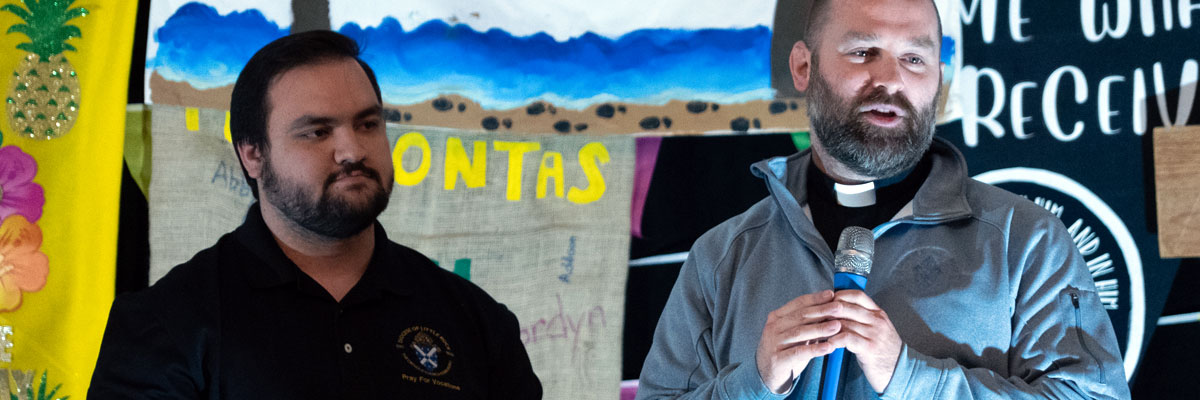Official Website of the
Catholic Diocese of Little Rock
Jeremiah's words stand as witness to all
Published: February 11, 2012
This is the ninth column in a 13-part series
By Cackie Upchurch
Director of Little Rock Scripture Study
Some of the more familiar biblical passages, often used to comfort or encourage, come from Jeremiah: "Before I formed you in the womb, I knew you" (1:5), "I know well the plans I have in mind for you … to give you a future of hope" (29:11), "With age-old love I have loved you" (31:3), "I will place my law within them and write it upon their hearts" (31:33). As wonderful as it is to focus on these beautiful phrases, it is the context of these passages that reveals the full power of Jeremiah's words.
 Jeremiah's ministry as a prophet among God's people occurred in the final years of the southern kingdom of Judah (ca. 621-580 BC). He ministered at the time of the great spiritual and national reform inaugurated by King Josiah, and for a number of years after the failure of that reform when Judah fell to Babylon and Judah's leaders were exiled. Jeremiah himself stayed in Jerusalem until being exiled to Egypt before his death.
Jeremiah's ministry as a prophet among God's people occurred in the final years of the southern kingdom of Judah (ca. 621-580 BC). He ministered at the time of the great spiritual and national reform inaugurated by King Josiah, and for a number of years after the failure of that reform when Judah fell to Babylon and Judah's leaders were exiled. Jeremiah himself stayed in Jerusalem until being exiled to Egypt before his death.
In the Bible, the primary role of the prophet is to speak for God, to see and hear as God sees and hears, and then to pronounce words of correction and hope. Imagine God's covenant as the standard against which all human attitudes and interactions are measured, a standard that promotes community and intimacy with God. The prophet promotes that standard.
Each biblical prophet uses his own unique style to articulate the covenant qualities of justice, righteousness, and faithful love in such a way that God's people can see for themselves whether they are embracing life with God or rejecting it. And if they fail to see and to reform, then the prophet gets more inspiring and forceful in his language or engages in creative actions to make the point.
In particular, we might appreciate Jeremiah for four themes that surface in the biblical book attributed to him: the spiritual condition of the individual, the call to repentance, the cost of prophetic ministry, and the parallels between his ministry and that of Christ.
Most of the prophets directed their oracles to groups of people: the political ruling class, the priestly class, those who were wealthy, or to the nation in general. Jeremiah, however, includes obvious concern for the individual's condition. Through him, God promises to remain with Israel if "each of you" deals justly with neighbors, aliens, orphans, and widows (7:5-7). The individual cannot hide within the skirts of the community, hoping that personal attitudes and behaviors will be ignored.
A companion theme is found in Jeremiah's call to repentance, particularly in the use of a particular Hebrew term (shuv) which means "to return." Jeremiah 31:31-34 captures beautifully God's desire for a "new covenant" written on the hearts of God's people. With a fresh relationship characterized by mercy and forgiveness, Israel would not only return to Jerusalem after exile, but she would be returning to God.
Jeremiah, like many prophets before and after him, knew that speaking on behalf of God was thankless work. Mercy and forgiveness were only possible once sin and rebellion were acknowledged. Afflicting the comfortable was a dangerous task. It is little wonder that when called to prophetic ministry so many of them tried to excuse themselves.
The anxiety and hardship of ministry is captured in five "confessions" scattered throughout Jeremiah (11:18–12:6; 15:10-21; 17:14-18; 18:18-23; 20:7-18). These dialogues between Jeremiah and God allow us to enter into the doubt and confusion, the feelings of unworthiness and inadequacies, and the utter loneliness of being called by God to do difficult things. Yet, through it all, Jeremiah is faithful because he is convinced of God's abiding presence.
Finally, in the person of Jeremiah, we meet a person who pre-figures the mission and ministry of Christ. Both discovered that a prophet was not welcome among their own people, that plots against them would be common, and that even in the face of God's desire to save, people often turn their backs on a liberating message.
In the person of Jeremiah, we encounter the integrity and vulnerability required of all who seek to do God's will. And in the message of Jeremiah, we encounter the God who willingly walks through even the destruction of national dreams in order shape a people as God's very own.
Study Questions
- How would you describe the relationship between the prophets we encounter in the Bible and the covenant God makes with his people?
- In the ancient world of Israel and Judah, the prophet addressed conditions that indicated the people had forgotten the necessity of justice and faithful love. What conditions in our world now might indicate we too need to be reminded of our call to live in covenant?
- Why do you think the message of Jeremiah is so often quoted in the New Testament?
- What is it about Jeremiah's "confessions" that speak to you? What do you relate to? How do his dialogues with God inform your own prayer life?
This article was originally published in Arkansas Catholic Feb. 11, 2012. Copyright Diocese of Little Rock. All rights reserved. This article may be copied or redistributed with acknowledgement and permission of the publisher.









